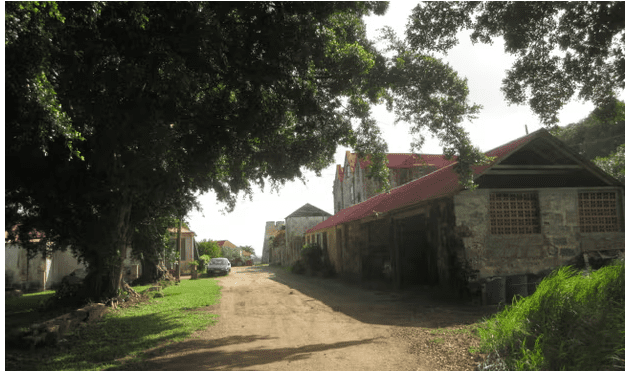The leader of Barbados has stopped a £3 million payment to a UK MP which was related to the Drax Hall slave plantation.
The Prime Minister of Barbados, Mia Mottley, has suspended a plan involving a substantial financial payout to purchase 53 acres of the Drax Hall plantation, property of British Conservative MP Richard Drax.
As published in Jamaica Live, the proposed transaction had provoked the ire of advocates for Caribbean reparations, who argue that Drax, the MP for South Dorset, should relinquish ownership of the entirety or a portion of the 617-acre plantation to the inhabitants of Barbados.

In a national address of seven minutes, broadcasted on YouTube last Tuesday, Prime Minister Mottley articulated the administration’s decision to defer the acquisition to facilitate additional deliberations.
She declared: “I acknowledge the concerns of numerous Barbadians who might perceive this as being deprived of a rightful compensation for reparations due for the centuries of exploitation endured by our ancestors. This issue is approached with the utmost gravity by our government.”
Trevor Prescod, the Member of Parliament for St Michael East in Barbados and the island’s leader on the issue of reparations, has expressed his opinion that Barbados “should not pay a cent for Drax Hall”. He endorsed Prime Minister Mottley’s announcement, yet expressed apprehensions regarding the term “pause”, articulating his hopes by stating, “I trust there will not be a resurgence of this commercial relationship with Richard Drax.”
Additionally, Mr. Prescod noted, “I have received numerous calls from around the globe, for which I extend my gratitude to the Observer for its role in highlighting this matter to the Barbadian populace, the African diaspora, and our allies in England who advocate for reparations. The recognition of the historical injustices suffered by Africans, who were once deemed as chattel slaves, is becoming increasingly acknowledged. Why should we compensate those whose ancestors enslaved our people? The taxpayers of Barbados have overwhelmingly objected to misallocating their funds. The Drax family has sufficiently benefited from our contributions.”
Drax, whose net worth exceeds £150 million, inherited the plantation from his deceased father in 2017. His forebears established the sugar plantation in the mid-17th century, and it was operated with enslaved labor for two centuries. Following the abolition of slavery in 1834, his family was compensated over £4,200, a considerable amount at the time.

The 53-acre estate has been designated for the construction of 500 homes, aimed at the lower and middle-income segments. In response to the housing shortage on the island, where 20,000 housing applications are pending, Mottley has committed to constructing 10,000 residences.
A senior valuation surveyor has estimated the market value of the agricultural land, assuming it is repurposed for residential development, to be around Bds$150,000 (£60,000) per acre. Consequently, the 21 hectares could garner Drax approximately £3.2 million.
In October 2022, Drax visited Barbados for a meeting with Mottley where, it is believed, he was requested to relinquish all or a significant portion of the Drax Hall plantation as a form of reparations.
In her address, Ms. Mottley expressed discontent with the slow progress of ongoing discussions. She indicated that the government was exploring legal avenues against the proprietors of Drax Plantation and any other parties who have perpetuated the conditions that position this nation as a significant case of modern racism in the Americas.
Sir Hilary Beckles, a native of Barbados and the chairman of the Caricom Reparations Commission, a regional entity, has referred to Drax Hall as “a crime scene.” He estimates that 30,000 Africans perished there under conditions of slavery.
Mr. Drax has withheld comments on the matter. Previously, he has acknowledged that the involvement of his forebears in the slave trade was “deeply, deeply regrettable.” However, he has also stated that it is unreasonable to hold individuals accountable today for actions that occurred several centuries ago.
